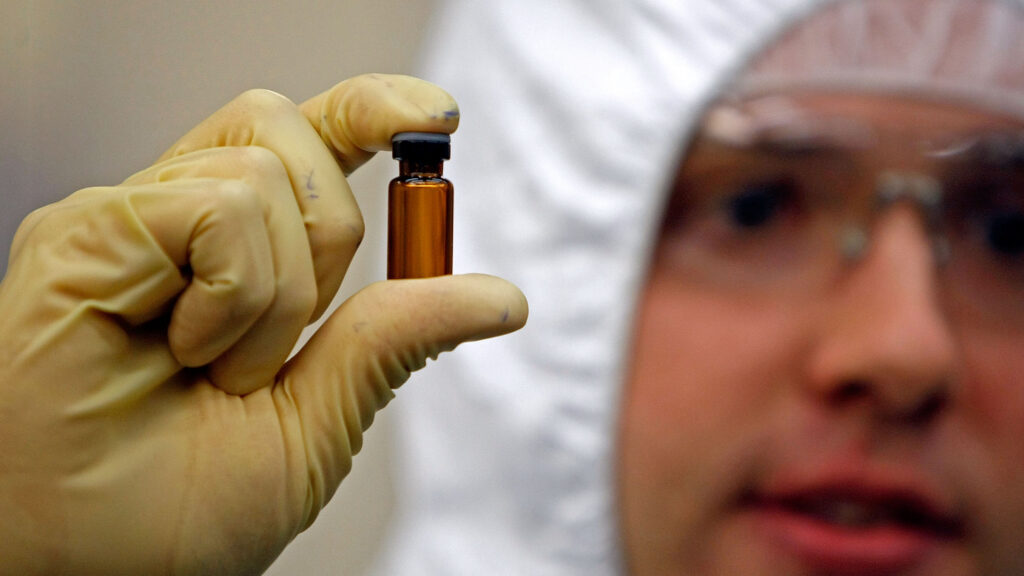The Gates Foundation said Wednesday it plans to launch a long-awaited trial to test what, if proven effective, would be the first new tuberculosis vaccine in over a century.
The 26,000-person, Phase 3 study will test a vaccine known as M72/AS01 that showed promising results from a smaller trial in 2019. The findings stoked excitement at the time. But a larger, confirmatory study was delayed as GSK, the company then developing it, transferred the shot to the Gates Foundation rather than move forward with the vaccine itself.
“We experienced quite a bit of frustration with how long it took,” said Thomas Scriba, a University of Cape Town immunologist and an investigator on the both studies, calling the news “an unbelievably positive development … the world really needs a TB vaccine.”
To be clear, there has been a tuberculosis vaccine since 1921, when a French team created what’s known as the BCG vaccine from the bacteria that causes bovine tuberculosis. It is given to children in many middle- and low-income countries, but studies measuring its effectiveness have shown mixed results, and it doesn’t protect adolescents or adults.
Meanwhile, tuberculosis remains a leading global cause of death, claiming about 1.6 million lives every year, more than any other infectious disease before Covid’s emergence.
No new shots have been developed since the BCG vaccine, in part because of scientific hurdles — tuberculosis is a far more complex pathogen than, say, SARS-CoV-2 — and in part because the disease primarily affects the planet’s poorest, providing little financial incentive for pharma companies.
Nomathamsanqa Majozi, head of public engagement at the Africa Health Research Institute, described on a foundation press call the toll that tuberculosis continues to take in her home of KwaZulu Natal, South Africa. More than half of the community has or will develop tuberculosis. Many are wage laborers, so falling sick can not only endanger their lives, but also their families’ economic stability.
There are “catastrophic costs,” she said.
The Gates Foundation, which also funded early research on the shot, plans to start the trial in 2024. It has committed $400 million to the trial, and the U.K.’s Wellcome Trust is committing up to an additional $150 million. The trial will take place across more than 50 sites in Africa and Asia and likely take four to six years to complete, Trevor Mundel, the Gates Foundation president of global health, told reporters.
It will take time to both recruit people and for enough people in the study to get sick so that researchers can see whether the shot is working. Mundel said they will analyze the shot’s efficacy once 150 people across the vaccine and placebo arm develop active disease.
The study won’t primarily test whether the vaccine can protect children who have never been exposed to TB, as the BCG shot is supposed to. Rather, the trial will see if it can prevent adults and adolescents with latent tuberculosis infection — that is, people who are infected but have no symptoms — from developing full-blown illness.
Recent estimates suggest about a quarter of the global population has latent tuberculosis infection. About 5%-15% will develop the disease during their lifetime. The 2019 study results indicated that the M72 vaccine cut the risk of developing full-blown tuberculosis by 49.7%.
“It’s really a big deal,” said Maziar Divangahi, associate director of the McGill International TB Centre. “If this vaccine could reduce the disease by 50%, that has tremendous implications worldwide.”
Such a reduction, he said, could significantly curb tuberculosis transmission, as people with latent infection can’t spread the bacteria. A 2022 WHO report estimated that a 50% effective TB vaccine for adults and adolescents could prevent 37.2 million to 76 million cases and 4.6-8.5 million deaths by 2050.
Divangahi cautioned, however, against putting too much faith in the 2019 results. In that trial, 39 people — 26 in the placebo group, and 13 in the vaccine group — became sick, so the sample size was “extremely low,” he said. And no one knows how long protection might last.
Although the Gates Foundation is manufacturing the vaccine, GSK will continue supplying an adjuvant, a molecule designed to amplify the vaccines’ signal to the immune system. A GSK spokesperson said that given the complexity of running a Phase 3 trial in lower-income countries, the company believed the Gates Foundation was the best organization to move forward with the vaccine, and that GSK’s “most important contribution to global health is the science, investigating proof-of-concept through phase 2.”
If the vaccine succeeds, the Gates Foundation’s work will be far from over. Mundel said the foundation would need to find a partner to manufacture the drug for a commercial market. And given that tuberculosis primarily affects the poorest groups in low-income countries, experts warn rollout will be daunting.
Although latent tuberculosis can already be treated with antibiotics, those drugs require people to take pills for at least a month. Many low-income countries don’t have the extensive resources required to identify and dose infected individuals.
A two-dose shot should be more scalable, said Mel Spigelman, CEO of TB Alliance, but it “will still be a very expensive and daunting task” to find and dose potentially billions of people.
“That will require a lot of resources,” he said, “that aren’t presently being devoted to TB.”


